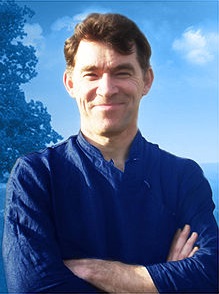Guest writer for Wake Up World
Dirty diapers, being woken up in the middle of the night, a house full of screams and squeals, food splattered all over the walls, toys strewn chaotically over the floor, no more late nights out, no time to read books…What could be enriching about raising children? Isn’t personal development just one of the many things we sacrifice when we have kids?
[pro_ad_display_adzone id=”110028″]
This is why priests and monks have always been celibate. To be spiritual we’re supposed to live apart from the normal world, in monasteries, forests, or in the desert, meditating and praying in solitude. Nothing is meant to divert us from our spiritual practices—least of all a family, which takes up so much of our time and energy.
In India, there is a tradition that spiritual development belongs to a later stage of life—roughly after the age of fifty. First we have to live through the “householder” stage, bringing up and providing for our children, and living a worldly life. But once our children are grown up, we can turn our attention to the inner world. We can start meditating regularly and living more quietly and simply.
However, many parents find that—far from hindering it—bringing up children furthers their development. Seen in the right way, parenthood can itself be a path of personal and spiritual growth.
Childhood Mindfulness
Part of the reason for this is that children naturally possess some traits that we associate with growth. Mindfulness is a good example. Most people would agree that to be more mindful and present to our own experience is a very positive trait, which enhances our lives.
Children are naturally mindful. They always live fully in the present. They don’t spend any time worrying about future events or mulling over past events, feeling anxious or resentful. As a result, the world is a fantastically real and interesting place to them. As the child psychologist Alison Gopnik puts it in her book The Philosophical Baby[TM1] , “Babies and young children are actually more conscious and more vividly aware of their external world and internal life than adults are.”
And when we spend time with young children, we become naturally mindful ourselves. I remember this vividly when my three children were young. When I went walking with them, I was always amazed at how long it took to get anywhere, because they stopped to examine everything. Trees, bushes, stones, leaves, wire fences, puddles, even discarded potato chip packets and soda cans—everything was a source of wonder. Their world was filled with fascinatingly different textures, colors, shapes, patterns, smells, and sounds.
Walking with my kids reminded me to stop and look. It reminded me that almost everything is fascinating if you just take the trouble to pay attention to it. It taught me the joys of ambling along, staring at the sky, looking at the plants and bushes and trees around me, taking in the reality of the moment rather than thinking about the future or past.
Becoming Children Again
It’s important for our personal development to transcend our selfishness, to stop seeing ourselves as the center of the universe and to stop trying so hard to satisfy our own desires. Spiritual traditions advise us to help and serve others, so that we can move beyond our separate ego, and connect to a transcendent power. Buddhism even suggests that desire is the root of all suffering in our lives, and that the only way to become truly content is to overcome desire itself—literally, to stop wanting and to accept our lives and ourselves as they are.
The eightfold path of Buddhism aims to cultivate this selfless state, and ideally the path of parenthood can, too. It’s impossible to be a good parent without being prepared to put your children first. As anyone who has stayed up through the night with an ill child knows, parenthood is all about self-sacrifice. As Alison Gopnik writes:
Imagine a novel in which a woman took in a stranger who was unable to walk or talk or even eat by himself. She fell completely in love with him at first sight, fed and clothed and washed him, gradually helped him to become competent and independent, and spent more than half her income on him.… You couldn’t bear the sappiness of it. But that, quite simply, is just about every mother’s story.
Re-awakening
The poet William Wordsworth described how children see the world “apparelled in celestial light,” with “glory and freshness of a dream.” He also described how, as we become adults, this vision “fades into the light of common day.” However, having children of our own helps us to reawaken some of this celestial light. Certainly, parenthood can help us to develop higher qualities that we retain for the rest of our lives. As Alison Gopnik has put it, “Caring for children is an awfully fast and efficient way to experience at least a little saintliness.”
Originally published at Psychology Today and reproduced with permission.
About the author:
Steve Taylor is a senior lecturer in Psychology at Leeds Beckett University, UK. His latest books in the US are The Calm Center and Back to Sanity: Healing the Madness of the Human Mind. He is also the author of The Fall, Waking From Sleep, and Out Of The Darkness. His books have been published in 19 languages. His research has appeared in The Journal of Transpersonal Psychology, The Journal of Consciousness Studies, The Transpersonal Psychology Review, The International Journal of Transpersonal Studies, as well as the popular media in the UK, including on BBC World TV, The Guardian, and The Independent.
Connect with Steve at StevenMTaylor.com.
[pro_ad_display_adzone id=”110027″]








